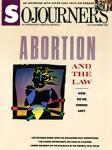As the folks at Mazda are always reminding us, the 1980s-going-on-'90s are really the 1950s. That's the key marketing pitch -- and cultural and political agenda -- behind those omnipresent TV spots for the Maita retro-roadster.
You know the ones: The screen fills with outtakes from the Reagan '84 "Morning in America" series while the soothing voiceover recites a neo-"Happy Days" litany which could have easily come from the lyrical opening passage of E.L. Doctorow's Ragtime. "Romance was big ... Rock and roll was in ... Everybody was feeling pretty good ... There were no Negroes ..." Oops, that last part was Doctorow, but you get my drift.
I don't believe that history runs in cycles. But I do believe that the culture-gurus at Mazda are on to at least the germ of something. The 1950s in America seemed like a time of political quiescence and cultural entropy, under a protective canopy of economic good-feeling. According to the mainstream pundits of the time, the Big Questions of American history were all settled. The future would be an unbroken Pax Americana ruled by The Organization Man in the Grey Flannel Suit.
Of course the wise ones were all wrong. While America was supposedly busy feeling good about itself, the world was changing. The geological plates of history were silently shifting and earthquakes were being born. On the international front, colonialism was dying and a Third World was discovering itself. And, in a not-unrelated trend, on the home front African Americans were re-opening the question of democratic ideals vs. practice in ways that, at least for a while, called the whole structure of American society onto the carpet.
I tend to think that our apparently moribund time is similarly pregnant with new possibilities. Internationally speaking, the coming of a new era is as plain as the nose on your face. The Cold War is ending. Europe is uniting. The natural environment is rebelling. These facts will, if we're lucky, force America to turn inward and start tending its own long-neglected garden. And I'm old-fashioned enough to believe that if, or when, that turn comes, the question of race, and more specifically the question of African Americans' relationship to the society at large, will again be looming large.
THAT'S WHY TWO OF THE MOST heartening things that happened to me on my summer non-vacation were seeing Spike Lee's Do The Right Thing and reading Nelson George's The Death of Rhythm and Blues.
The Spike Lee joint is reviewed elsewhere in this issue, so I'll just say that, for my money, it may be the best American movie in at least 10 years. You'd have to dig back to the halcyon days of Robert Altman's Nashville and Coppola's Godfather II to find another mainstream movie with as much ambition, subtlety, and confidence in the intelligence of its audience. Apparently Mr. Lee overestimated the intelligence of some viewers. Throughout the summer he was repeatedly subjected to the racist paranoia of white media vultures who seem to have walked into his movie halfway through it, left about 20 minutes before it was over, and not understood a thing that they did see.
Nelson George, the young, black music editor of Billboard magazine has, on the other hand, largely gotten his due in the much smaller world of booktalk. The Death of Rhythm and Blues uses the postwar history of African-American popular music as a prism for examining the effects of "integration" and/or assimilation on the well-being -- economic and otherwise -- of black America.
It's not a pretty picture. As George tells it, integration, which in the music biz equals "crossover," has meant that black musicians and music business-folk are forced into an unequal competition for white dollars. This phenomenon, in George's view, creates a few unprecedentedly huge black superstars (Michael Jackson and Prince), but on the whole it dilutes the power of black music, destroys the pockets of black self-sufficiency that the music had nourished, and opens the Afro-American market (i.e. black radio) to unequally (i.e. over) funded and promoted white "R&B" artists such as George Michael. In the end, black people -- artists and audience alike -- are left with much less real control over their own institutions, their own consumer dollars, and their own culture.
George concludes that "black America has to acknowledge that racial pride is as worthy a goal as equality under the law, and, moreover, that the two agendas still go hand in hand." The astute viewer will hear those words echoed in the twin quotes from Martin King and Malcolm X that close out Do The Right Thing.
George's assertion that self-regard and self-determination are the building blocks of real equality, and Lee's both/and stance toward nonviolence and self-defense, represent attempts by two of the best and brightest (males, anyhow) of a new generation to lay contemporary claim to the full resources of African-American political and cultural traditions. You could call this the voice of a younger and wiser neo-nationalism. You might also call it the cultural harbinger of a future post-civil-rights movement centered on the imperative of black survival in the age of crack, AIDS, Howard Beach, and the Rehnquist Court.
Danny Duncan Collum is a Sojourners contributing editor.

Got something to say about what you're reading? We value your feedback!
